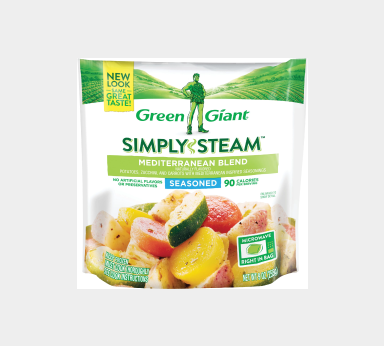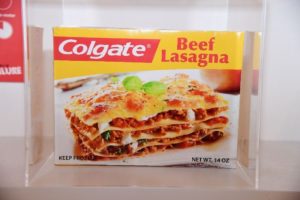
Colgate’s Frozen Folly: when toothpaste wants to enter the kitchen
In the 1980s, the consumer market witnessed a boom in frozen food, driven by the growing desire for convenience, and the evolving lifestyle for consumers, as well as advancements in freezing technology. Consumers sought quick, easy-to-prepare meals that didn’t compromise on taste, and the industry responded with a plethora of options, ranging from frozen pizzas to complete dinners. For example, Green Giant began the distribution of the first vegetables processed exclusively for the microwave oven.

Colgate had been founded a century earlier as a starch, soap, and candle factory. In 1873 the company launched its first toothpaste, and by 1980s it was worldwide regarded as an oral care industry giant with leading products. However, Colgate also had several products in other non-related categories, such as pet food or personal care. In the 1960s Colgate had tested crabmeat and chicken products and eventually, pondered to launch its “Kitchen Entrees” line with products such as “Beef Lasagna”, which aimed to be a convenient dinner option that would seamlessly fit into the daily lives of their existing customer base.

The company anticipated that their reputation for quality and care in one sector would translate into another, but the result was overwhelmingly negative. Consumers struggled to reconcile the image of a brand known for toothpaste and mouthwash to that of ready-to-eat meals. To many consumers it evoked a visceral reaction: the idea of eating food from a brand synonymous with oral care products was unpalatable to many.
Now, do brand extensions always fail? Virgin Group provides a case in point of a very successful diversification. Virgin began as a record shop in the 1970s, eventually expanding into Virgin Records, a major record label. In 1984, Virgin moved to the aviation industry with Virgin Atlantic, which thrived largely due to its focus on customer service and innovation, traits that were core to the Virgin brand.
While Virgin is still a success with further expansions into sectors as varied as telecommunications (Virgin Mobile), health (Virgin Active) and even space tourism (Virgin Galactic), the story of Colgate Kitchen Entrees serves as a reminder that a strong brand domain does not necessarily translate to success in another. While the market conditions can be very appealing in a given moment, companies should have a customer-driven approach and thoroughly test whether an existing, leading brand could be used in a different sector.
